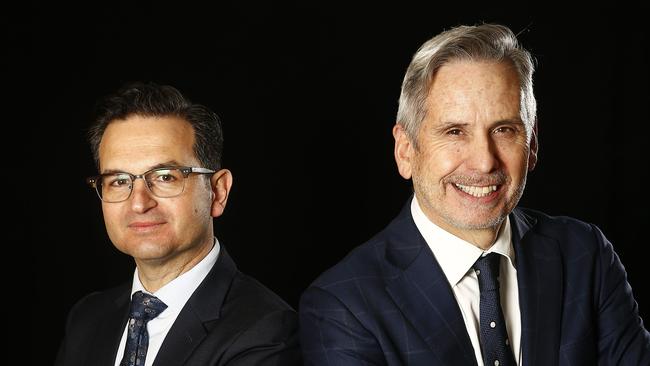
Clare sits on the edge of a hospital bed. Her eyes, straight ahead, are the only part of her body not moving.
From head to toe she convulses, swaying and jerking side to side. Her shoulders shake and shrug, her hands grasp at the edge of her bed as she battles to steady herself, her legs cross and uncross and her feet tense and pivot as they slide on the carpet.
“I was diagnosed with Parkinson’s in 2000,” she says, struggling to form the words. “The dyskinesia was much more recent than that. It’s been particularly bad the last four or five months. Before that I could put up with it, but I can’t put up with it now.”
“And you are hoping that after the operation the dyskinesia will settle down?” the doctor asks.
“I certainly am, but I’m waiting to see,” she replies. “I’m not making any promises to myself.”
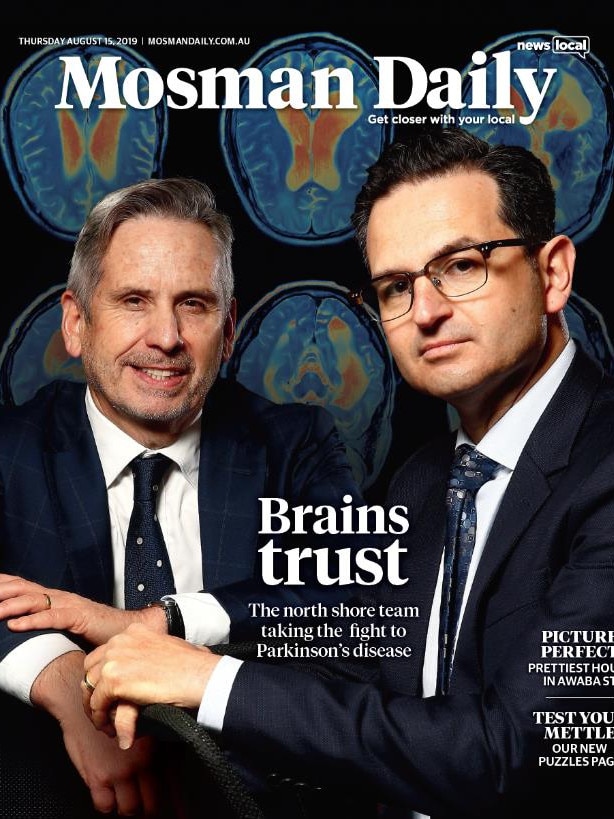
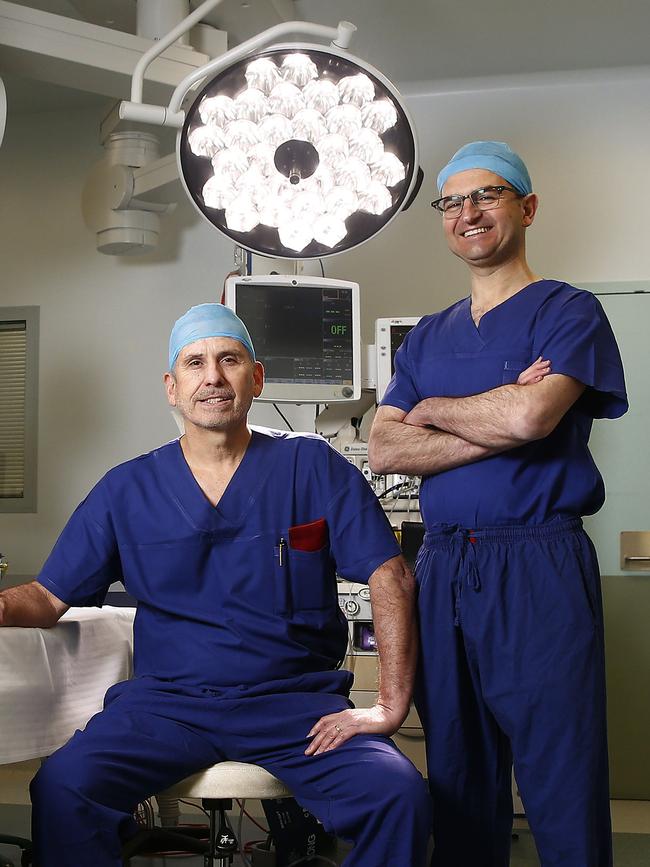
The footage fades and “Clare post DBS surgery” appears on the screen. We return to the room where Clare, now standing, appearing completely unaffected by tremors, calmly picks up a coffee cup and saucer and holds it up.
“I’d be able to drink out of this now without spilling it down my front for the first time.”
“And what’s happening with your dyskinesia now?”
“Oh it’s gone ... it’s just not here any more … within 48 hours of the operation. It’s a miracle.”
Watching this video in the St Leonards rooms of neurosurgeon Dr Raymond Cook and neurologist Dr Paul Silberstein, I was stunned.
The “DBS” the footage refers to is deep brain stimulation, which these two doctors have been doing as a team for 15 years. It involves keyhole brain surgery. A small hole is drilled into the skull and a tiny incision made in the lining of the brain to allow implantation of a stimulating electrode. This is connected by wires under the skin to a rechargeable pulse generator in the chest or abdomen, which sends continuous impulses to the brain to alleviate symptoms. DBS is used to treat tremor, dystonia and even Tourette syndrome, but mainly for Parkinson’s.
It was a miracle. Like waking up from a very deep sleep - Carole McFadden on the surgery
This topic is close to home as my dad was diagnosed with the disease a few years back.
Parkinson’s is a progressive neurological condition where a neurotransmitter called dopamine is not produced at adequate levels in the brain. Dopamine is particularly important for controlling movement, hence the symptom of tremors in sufferers. Dad’s symptoms are managed by medication. This initial “honeymoon period” can last 10 or more years, until the medication becomes less effective. At that stage a patient may become a candidate for DBS.
Doctors Cook and Silberstein are pre-eminent in the field, recently marking their 500th procedure.
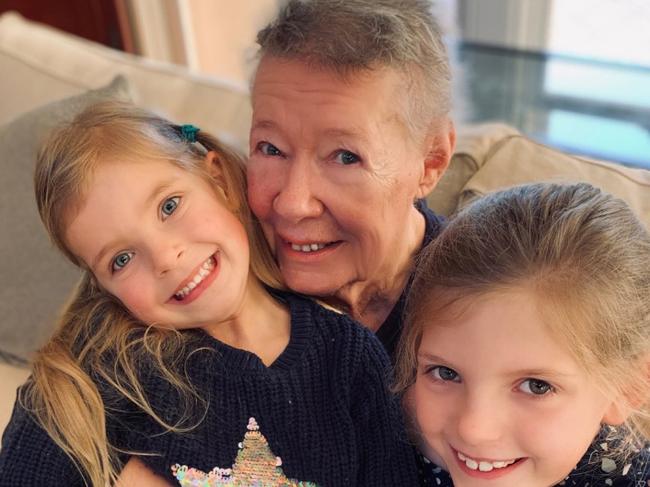
Technology has improved over that time.
“Years ago, putting electrodes in, we knew where the right spot was but couldn’t really see it,” Dr Cook said. “Now MRIs are clearer, we can see where we’re going.”
Along with better imaging came longer battery life on pulse generators, which now last up to 20 years before recharging and are smaller, more sophisticated and able to direct targeted impulses, “like a lighthouse”, to necessary parts of the brain.
They have also improved their understanding of the effects on their patients, who have ranged in age from 28 to 84. DBS caused some to feel euphoria, others depression. Working with dopamine brings some unpredictability.
“The first 100 patients we revised 10 per cent. The last 100 we revised 1 per cent,” Dr Cook said. “We got caught out with some patients’ mood changes, so worked out 10 years ago you need a psychiatrist to help.”
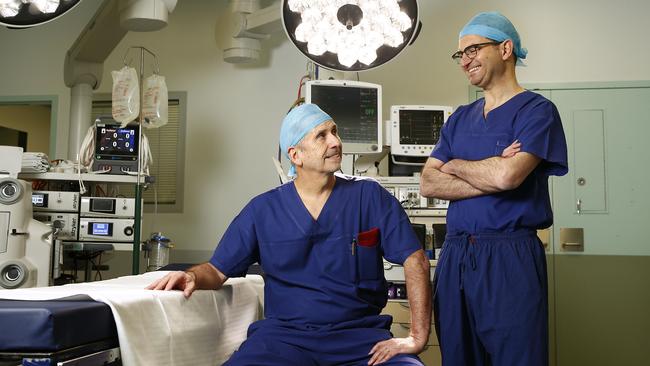
The procedure is not cheap and the doctors operate only at a private level, but patients can still receive DBS from good practitioners in the public system.
“The bottom line is that in Australia, if you want to be treated with DBS, the therapy is available,” Dr Silberstein said. “The main barrier is patient reluctance. When the possibility of DBS is first raised, most patients’ first response is something along the lines of ‘you’ve got to be joking’. Parkinson’s is a slowly progressive condition to which people adapt, and the decision to move from tablets and exercise to surgery is a difficult one, which takes time.”
Carole McFadden, 74, was one patient with misgivings.
“The day I discovered I had Parkinson’s, I came home and no one was there. I felt I wanted noise and I turned the TV on and there was a documentary on this operation, but in 1990-something and it was horrific. I thought ‘there is something that I will never have’,” Ms McFadden said.
Did I want to be Clyde that has Parkinson’s or Clyde that did something about Parkinson’s? - Clyde Campbell on revceiving his diagnosis
As time passed, she heard positive stories about what was being achieved in the field.
“Parko was taking away my life slowly but surely ... Dr Silberstein felt I’d gone about as far as I could go … that was the thing that made me decide,” she said. “I had great faith in my surgeon and my navigator, as I would call Dr Silberstein. It was a miracle. Like waking up from a very deep sleep.
“The first thing I did as an escapee was to be taken by friends and we sat in the middle of a restaurant and nobody stared and nobody made me feel I wanted to leave, and I had a happy day.”
Now she is returning to hobbies she no longer thought possible.
“I’m thinking about playing bridge again. Can you imagine what it was like sitting playing bridge with a strange group of people, with my hands? Just awful.”
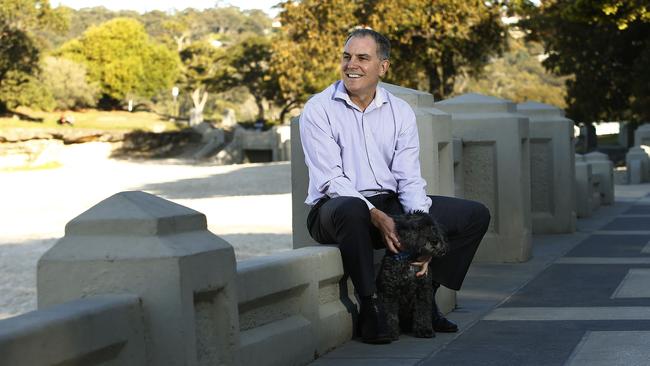
Ms McFadden chooses to see the positives in her experience.
“I think I’m kinder … I hadn’t really thought about how people who have disabilities manage. It isn’t easy,” she said. “It’s changed my life enormously and mostly because I can see my grandchildren. I couldn’t drive, I couldn’t come and see them, I couldn’t lift them, and now I can be a grandmother. I can see them grow up. Isn’t that wonderful?”
Ms McFadden’s daughter Jane was nervous, but saw it as a chance for her mum to regain her life.
“I have my mum back,” she said. “Her voice is the voice I’ve always known. Her face, her expressions, zest for life … Parkinson’s had taken away her social confidence.
“To now see her practically running down halls ... or walk into a room with a big smile on her face is just fantastic.”
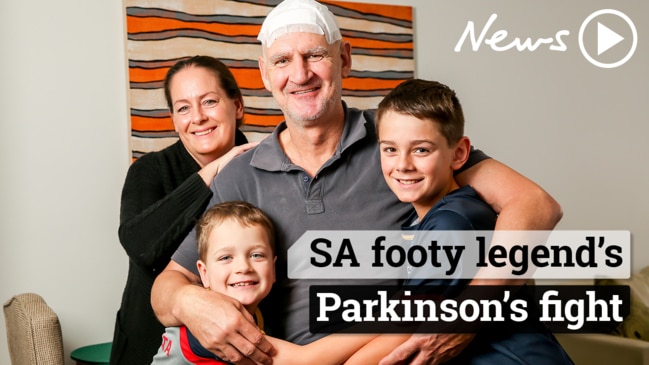
Doctors Cook and Silberstein continue their work, refining their skills and knowledge. Their pathway is not one to a cure, but to continually improving quality of life.
“We started off trying to keep people out of nursing homes, now we’re keeping them in the workforce,” Dr Cook said. “This is more than a job, it’s a life’s work; the most meaningful thing I’ve done. One day it’s possible we wake up and there will be a new thing and we’ll go and do something else.”
One man searching for that new thing is Clyde Campbell.
In 2009, when just 44, the robotics firm CEO felt his hand shaking while presenting at a work meeting. He was diagnosed with young onset Parkinson’s. It was a lot to process for the father of three, but the shock soon turned to resolve.
The ultimate goal is to shut the foundation after we find the cure - Clyde Campbell
“It was a surprise, but at the time ... I had to be two things. I had to be ready to accept the result and I had to be ready to do something about it,” Mr Campbell said. “Did I want to be Clyde that has Parkinson’s or Clyde that did something about Parkinson’s?”
He set out to find out as much as he could about the disease. His search led to the Michael J. Fox Foundation for Parkinson’s Research in the US and the impressive work it does to fund medical research into better treatments with the aim of finding a cure.
Mr Campbell launched the Shake It Up Australia Foundation, partnering with the Michael J. Fox Foundation in 2011.
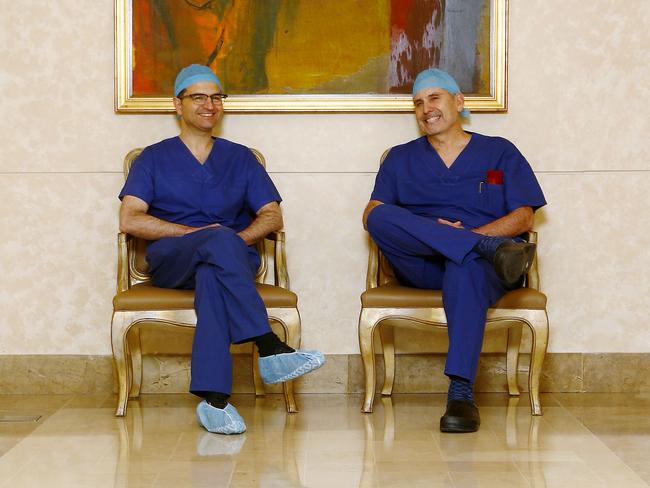
Shake It Up has since co-funded 38 research projects to the value of more than $10.8 million. Much current work is focused on earlier detection of Parkinson’s, when dopamine levels are down by about 30 per cent, rather than the 70 per cent many are diagnosed at, and halting its development.
Projects involve repurposing compounds from other medications that may have a positive effect on Parkinson’s. Scientists are trialling about 20 compounds in various combinations, with some encouraging signs.
Mr Campbell has his sights set high. “The ultimate goal is to shut the foundation after we find the cure,” he said. “That’s when we will have finished.”

Add your comment to this story
To join the conversation, please log in. Don't have an account? Register
Join the conversation, you are commenting as Logout
Here’s what you can expect with tomorrow’s Parramatta weather
As spring sets in what can locals expect tomorrow? We have the latest word from the Weather Bureau.
FBI warning as Israel reveals how it will mark October 7
A chilling message has been issued as Israel prepares to mark the grim anniversary of the attack that changed the world. See the photos, video.